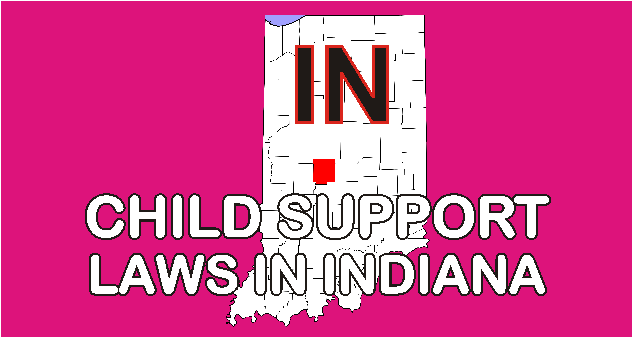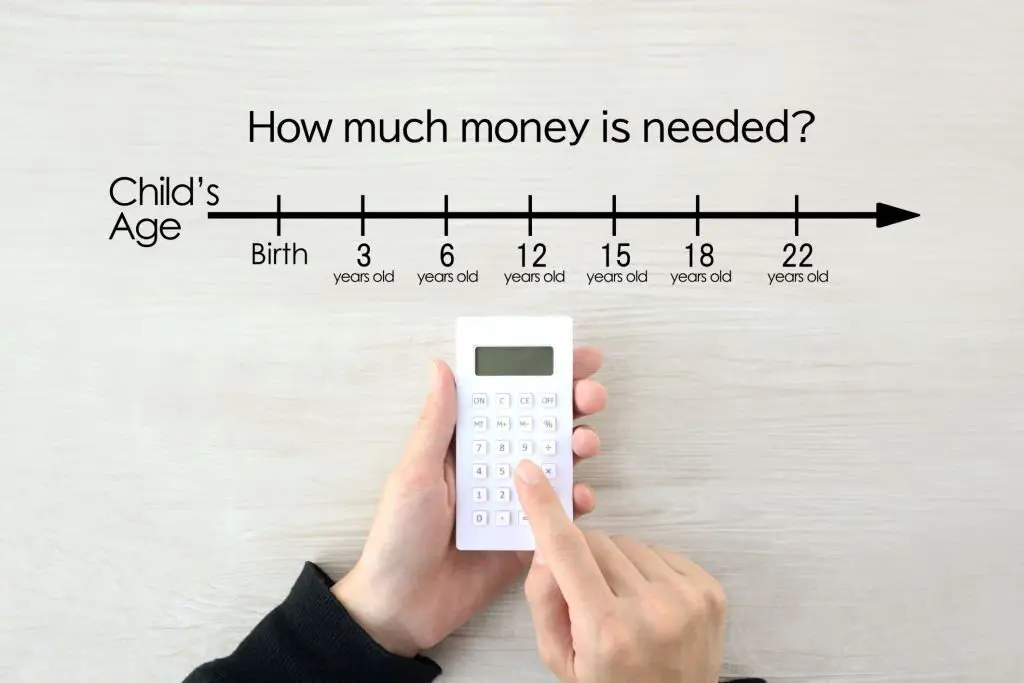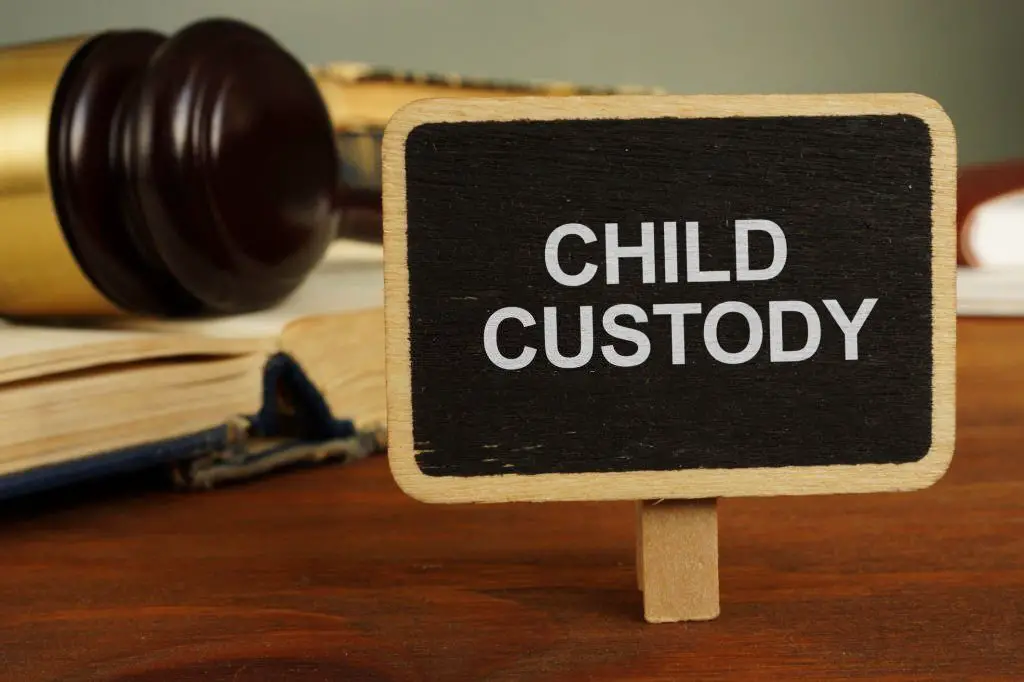
The laws governing child support in Indiana are different from that of other states. IN child support law sets how much the child maintenance should be, and the duration of such payments, plus it seeks to guide parents in exceptional cases such as deviation, support for disabled children, and retroactive support.
As you may already know, child support (or child maintenance) is a continuous monetary payment made by a spouse to another spouse, guardian, caregiver, or the state for the upkeep of children after a divorce or separation.
The person who is required to pay child support is referred to as the “obligor,” whereas the person who is eligible to receive child maintenance is referred to as the “obligee.”
What are IN Child Support Laws?
In Indiana, a parent’s duty to pay child support is determined in part by how much they each make and how much they must spend on other expenses. The amount of time that each parent spends with the child and his or her needs will be taken into consideration by the court. These are contained in the Indiana Code, Title 31, Article 16,
Before creating a support order, the Title IV-D child support office in your county will consider a number of issues, including.
Child care costs and child support in Indiana
Children are now regarded as emancipated for child support purposes at age 19 as opposed to age 21 by the new Indiana child support statute (2012), which went into effect on July 1.
The new rule allows a parent who is paying child support to change the terms of the agreement to end assistance once the child reaches the age of 19. With this modification, Indiana’s child support laws are now consistent with those of neighboring states, which have long utilized the ages of 18 or 19 as the legal
This means that, for the typical child support payer, even if your child is in college and still financially dependent on you, you will not be required to pay support to the other party for your minor child after the age of 19, no matter how old the child is.
Indiana Child support age and College
Indiana has particular rules that take child care expenditures into account differently from the overall costs of raising a child for the purposes of determining child support payments due to the high costs of child care for a single payment.
Child care expenses are treated by IN as a “required deduction” for essential child support. This means that, in cases when the non-custodial parent provides for child care, the amount of the monthly child care costs that can be attributable to the custodial partner is subtracted from the non-custodial partner’s monthly child support contribution.
The non-custodial parent must contribute their fair portion in addition to regular child support if the custodial parent covers child care costs.
What does Child Support Cover in Indiana?
In Indiana, Child support is mandated to pay for both the child’s health insurance and necessities of living. The non-custodial parent may also be required to foot the bill for the child’s educational requirements, medical, hospital, or dental costs, as well as funeral costs should the child pass away, if it is in the child’s best interests.
Child Support When One Parent Lives Outside Indiana
To enforce child support orders beyond state boundaries, each state has to have the Uniform Interstate Family Support Act (UIFSA) in place. Indiana is no exception.
The UIFSA ensures that child support processes and procedures are consistent across states. When one spouse lives in another state where the Indiana courts do not have the authority to adjudicate or enforce orders, UIFSA reduces these bottlenecks.
It’s possible that Indiana doesn’t have jurisdiction over the non-custodial parent if they reside in another state. In Indiana, the county prosecutor’s Title IV-D office may be able to collect child support if there is already a court-approved order in place by sending an income withholding order (IWO) to the non-custodial parent’s workplace.
The county prosecutor’s Title IV-D office in Indiana may use the UIFSA statute to request assistance from the other state’s Title IV-D agency if it is necessary to establish paternity, create a court order, or compel the payment of support.
To get updates on the status of your case, you can get in touch with your Indiana Title IV-D caseworker, but you shouldn’t get in touch with the other state directly.
How is Child Maintenance Calculated In Indiana?

Learn How Child Maintenance Calculated In Indiana
To calculate child support, Indiana is based on a set of rules that takes into account weekly gross income. The court uses government salary match data to verify all income, and parents are expected to produce worksheets outlining all of their income and outgoings.
“Gross weekly earnings” consists of:
- Overtime income from earnings, self-employment, rent, and royalties
- Overtime
- Bonuses, commissions, and
- Other sporadic sources of income.
For the purposes of determining gross weekly income, means-tested public assistance is not regarded as income.
The Indiana Child Support Bureau also provides a number of useful resources. This official Indiana kid maintains calculator enables parents and officials to figure out how much each parent should pay to support a child.
Indiana Child Support Calculator and Worksheet
While a child support calculator can be used to estimate child support, it is not a guarantee of the final amount of child maintenance that the judge will order. A child support worksheet is a form used by the IN courts (or negotiating spouses) to approximate the basic child support obligation of the parents.
Regardless of which approach you use, spouses can decide on a child support sum and amend the worksheet accordingly to ensure it accurately reflects their agreement. Both establish a presumption duty to pay child support.
The final decision on the amount of child support is made by the administrative law judge, administrator, or court.
How Indiana Guidelines are Applied
The income shares model which is used in IN is described in the Indiana Child Support Guidelines. According to this approach, a child receives the same amount of money from a parent as they would have if their parents had lived together.
The recommendations call for many actions:
- Finish the worksheet on child support obligations.
- Determine the parents’ combined annual gross incomes.
- Make specific modifications to the gross income of each parent.
- Add the combined gross income of the parents.
- Determine the parent’s respective income share in percentage terms.
- To ascertain the overall cost of supporting the total number of children shared by both parties, review the amount in the “Guideline Schedules for Weekly Support Payments.”
- The weekly cost of the child(ren)s’ health insurance premiums as well as work-related child care charges should be added to the child support payment.
- Divide the weekly adjusted income between the parents in proportion to their respective shares of the child support requirement.
Gross Income Included in Calculating Child Maintenance
For child support calculation purposes, gross income includes:
- all wages and salary, including commissions, military pay, tips, overtime, and bonuses
- self-employment income
- interest and dividends
- net rental income from property the parent owns
Even jobless parents are likely to have some sources of income, like:
- severance pay
- unemployment benefits
- retirement benefits
- veterans’ benefits
- disability benefits, or
- workers’ compensation awards.
A IN family court judge may also allocate an income value to parents who do not currently have income-earning employment (like a second house). If a jobless parent inherits assets that can be sold, for instance, the judge may include the property’s market value as a part of such parent’s income.
Where parents willfully go unemployed or underemployed in order to avoid paying child support, judges may infer (assign) income based on what they are supposed to be earning.
Net Income for IN Guidelines

How to determine Net Income for IN child support
Remove the following costs from the total gross income to get the parent’s net income for paying child support in Indiana:
- Social Security taxes, or any mandated retirement plan contributions if the parent does not pay those taxes.
- Income taxes, both federal and state (based on the tax rate for a single person claiming one exemption)
- union dues
- The IN court has ruled the parent to pay the child’s health and dental insurance premiums, as well as additional medical bills.
Parents who have already paid child support for another kid or children (from a previous relationship) may be eligible for a refund.
Is Medical Health Insurance Part of Child Support in Indiana?

Medical Health Insurance and Child Support in Indiana
Yes, in addition to the amount of support determined by the guidelines in Indiana, the parents will be responsible for the child’s health and dental insurance.
Whereas the noncustodial parent is presumed to provide coverage, this can readily be transferred to the other parent if it makes good sense.
For instance, suppose the custodial parent’s employer offers healthcare insurance for the dependent but the noncustodial parent does not.
Factors Indiana Courts Consider Before Ordering Maintenance
The following factors must be considered by the court when determining whether Indiana Family Code applies:
- The age of the child and needs; the parents’ ability to assist
- Financial resources available to the child
- For a set period of time, you have custody and access to a child.
- An increase or decrease in the obligee’s earnings or income due to the obligee’s property and assets
- Child care expenses incurred by either parent in order to keep a job
- any other children under the care of either party
- Any other children under the care of either party
- What kind of alimony or spousal maintenance is being paid or received;
- Obligor or obligee receives an automobile, house, or other benefits from his or her employer or business entity.
- The parties or the child’s special education, health-care, or other expenses
- The cost of traveling to obtain custody of and access to a child.
- Cash flow from any estate and assets, including real estate, personal property, and business property, can be positive or negative.
How to Challenge or Modify Child Support Order
You can either engage a private counsel or request assistance from the child support section of your county prosecutor’s office. You may even create your own pleading and act as your own attorney in court.
The paying parent must submit a formal request for a revision to the court that issued the first decree. It’s vital to realize that if the court approves a modification, the modification won’t go into effect until the judge sets a new amount; until then, you’re still liable for paying the old support amount.
In order for you to have a child support order increased or decreased in Indiana you must provide evidence:
- a significant and ongoing change in circumstances since the previous order has occurred (which renders the current order inappropriate), or
- the previous order is at least a year old, and the amount of support determined in accordance with the current Child Support Guidelines would differ from the existing order by at least 20%. 31-16-18-1 of the Indiana Code Ann.
Steps to Collect Child Support in Indiana

Steps to Collect Child Support in Indiana
Getting a child support order in place is only half the struggle in Indiana. You’ll also have to collect the money itself. A noncustodial parent is responsible for paying the full amount of child maintenance per month as imposed by the court. Here are the steps for getting child support in IN
1. Open a Child Support Case
Complete a child support application with your local child support agency/office
2. Locate the Other Parent
To begin the child maintenance procedure in IN, the child support services (CSS) office will use the information provided by the applying parent, as well as information gathered from other sources, to try to locate the other parent.
3. Establish Parentage
It’s critical to establish a legitimate relationship with the child when the other parent has been located. The state will assist you in locating the sufficient means. Parents can choose to acknowledge their parentage voluntarily or organize a genetic screening.
4. Establish a Child Support Order
An Indiana child support order specifies how much the other parent should pay and includes details such as the payment schedule and provisions for the child’s health insurance.
5. Set Up Payment
Deducting child maintenance from a parent’s paycheck and transferring the money to the other parent or guardian is the most typical method of payment. It’s a simple way to make and track child support payments.
6. Enforce the Support Order
Your IN child support services will enforce the child support order if the noncustodial parent does not pay the full amount or does not pay any. Exposing overdue child support payments to credit bureaus, intercepting income tax refunds, and Withholding child maintenance from unemployment or worker’s compensation benefits are examples of other enforcement measures.
7. Review the Order
Three years after the order is issued, either parent can request their local child support office to revise it. They can ask for a reassessment sooner than three years if a parent’s situation has changed significantly, such as loss of employment or imprisonment.
Indiana Child Support Services Office, Number and Login Portal
Indiana Child Support Bureau
Inquiry Unit MS11
402 W. Washington St.
Indianapolis, IN 46204
Phone: 1 (800) 840-8757
Indiana Child Support Arrears
According to Indiana law, the court may impose interest penalties on past-due child support payments of up to 1.5 percent per month. If payment is not received in line with support orders, the person or organization entitled to receive child support may ask the court to grant interest. Similar to support payments, accrued interest may be collected.
Reviewing the most recent court order to learn the amount of the payments and the date the order took effect is the first step in figuring out child support arrears. Next, ascertain whether any payments have been made in accordance with the order.
Add up the arrears for each month that child support was not paid in full, starting from the day the order took effect until the present. Do this month by month. The precise amount of the arrears must be known.
If you feel the arrears are being demanded wrongly, you can learn how to get child support arrears dismissed HERE.
How to Pay Child Maintenance in Indiana
In Indiana, parents can pay child maintenance in a variety of ways, as long as your order doesn’t state otherwise:
- by debit or credit card,
- mail,
- check
- bank transfer
- direct deposit
- income withholding, or
- auto-draft from a bank account.
How to Check your Child Support Payment History in IN

How to Check Child Support Payment History in IN
When there are disagreements between the parents and a need to confirm how much money is owed, child support payment records are extremely beneficial.
In order to check your child support payment history, you can call 1-800-840-8757. You can also visit the Indiana child support pay history access website and register online using your case number to view your child support payment history. The most recent five child support payments are available for viewing by both custodial and non-custodial parents.
To view your child support payment history online, you’ll need your case number. Visit the Indiana child support pay history access website and register for an account.
When Does Child Support End in Indiana?
In Indiana, when a child turns 19, the noncustodial parent’s responsibility to pay child support automatically expires. Unless they are disabled, children become “emancipated by operation of law” at the age of 19 and are no longer eligible for financial support from their parents.
According to the legislation, being incapacitated means not being able to support oneself due to a medically unfixable ailment. When a kid is incapable of caring for himself, the noncustodial parent is still obligated to pay child support until a court ruling terminates it.
Conversely, Indiana courts must emancipate minors before the age of 19 if they marry, join the U.S. military, or if they are no longer in a parent or guardian’s custody.
If all of the following circumstances exist, Indiana courts may decide to end a child support obligation, but they are not required to:
- The child is at least 18 years old.
- A secondary school, also known as a high school, or a post-secondary institution, also known as a college, has not been attended by the child in the previous four months.
- The youngster is not currently registered for secondary or post-secondary education.
- The young person is either able to support themselves through work or is already doing so. 31-16-6-6 of the Indiana Code Ann.]

Understanding Custody Rights of a Child in Indiana
How Does IN Child Support Work if one Parent Has no Job?
If the court approves an adjustment in keeping with current income, child support obligations for parents in Indiana who are receiving unemployment benefits can still be enforced, though the amount may be considerably lower.
The courts have in certain cases discovered parents who, if they desired to, could work and earn more money, but they don’t. This is referred to as “voluntarily underemployment” in legal terms.
A parent may be required to pay more in child support than what their income would normally suggest they could afford if the court finds them to be voluntarily underemployed. The violating parent may occasionally be given a grace period by the court to find new employment, but this normally comes with a deadline.
Is Child Support Tax Deductible in Indiana?
NO. In Indiana, child support payments are neither taxable to the recipient nor tax-deductible by the payer as stated by the IRS. Don’t include child support payments when calculating your gross income to see whether you have to file a tax return.
However, either parent may be eligible for a dependency exemption per child. If the parents can’t agree on who receives the exemption, the judge will set out the terms in a court order.
Getting a Skilled Indiana Child Support Attorney
If you are involved in a family law matter in Indiana, you may have a lot more questions than answers at this moment. You are not alone; Correspondence with members has shown that using the services of specialized child support attorneys saves a lot of hassles and most importantly, ensures you come out as a winner for you and your kid.
If you need to fight your child maintenance cause in IN with confidence, then you’ll need attorneys that are both empathetic and strong.
Luckily, we have compiled a database of these expert child support lawyers and made them available for the convenience of our members. You can reach them at the click of a button for legal advice and representation on child maintenance.
Click Here to Get our Free Indiana Alimony recommendation.
Indiana Resource
- Indiana Child Adoption Guidelines
- Indiana Childcare Guidelines
- Indiana Child Custody and Visitation Guidelines
- Indiana Child Support Guidelines
- Indiana Divorce Guidelines
- Indiana Marital Property Guidelines
- Indiana Spousal Support Guidelines
- How to Check Indiana Child Support Payment History
- Guideline Schedules for Weekly Support Payments in Indiana
- Indiana Child Support Calculator
Child Support Laws in all 50 States
A - Alabama | Alaska | Arizona | Arkansas
C - California | Colorado | Connecticut
D-H - Delaware | Florida | Georgia | Hawaii
I - Idaho | Illinois | Indiana | Iowa
K-L - Kansas | Kentucky | Louisiana
M - Maine | Maryland | Massachusetts | Michigan | Minnesota | Mississippi | Missouri | Montana
N - Nebraska | Nevada | New Hampshire | New Jersey | New Mexico | New York | North Carolina | North Dakota
O - Ohio | Oklahoma | Oregon
P-S - Pennsylvania | Rhode Island | South Carolina | South Dakota
T-U - Tennessee | Texas | Utah
V-W - Vermont | Virginia | Washington DC | Washington State | West Virginia | Wisconsin | Wyoming




